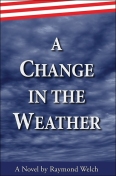Ashley Russell’s boyfriend Forrest hacks into Verdegen Corporation’s control system in Chapter 4.
Whatever’s going on with Julian Assange, it’s not about sexual misconduct.
Mr. Assange’s sexual history would be of no interest if it were not for his organization, WikiLeaks, devoted as it is to hacking the innermost secrets of governments and corporations and exposing them to public scrutiny.
Mr Assange’s outsider methods are likely to result in unintended consequences, possibly even the murder of people who are named on the lists he released. Whether he’s a hero or an antisocial egotist, we can grant that he must feel tremendous moral outrage and powerlessness to have become the world’s preeminent hacktivist and whistleblower.
Working outside the system scares people, myself included. But Assange’s point is that the system itself is the problem, and that working within it has proven futile. That implies revolution, and revolutions have losers. Even with reform, someone has to give up power. That’s not something humans do voluntarily.
But the existing system creates losers, too, entire classes of them, and destroys lives—systematically, by definition. For now, more of us benefit (on balance) from the status quo than are harmed by it. But as the economic crisis of 2008 continues to play out, that balance is rapidly reaching a critical pivot. And climate change will make it much, much worse.
The purpose of democratic government would seem to be to effect responsive reform in a controlled way, from inside the system itself. The fact that I can write this means that, so far, it’s not been a complete failure. Yet we’re reaching a sort of stasis, an inability to get at the root problems of our social and economic structures, even without the threat of climate disruption.
We can’t all have equal and simultaneous access to power— it’d be like trying to cram a houseful of frat boys into a Volkswagen Beetle. The vote systematizes and allocates that access, but many people feel their vote is overshadowed by organized special interests with vast reserves of money.
And, of course, power accrues to power. The Citizens United decision, which as a practical matter grants unlimited anonymous political spending to already powerful corporations, is just the latest proof that the system is tilting heavily toward the entrenched elites. (Notionally, CU applies to anyone, but the scale of corporate advantage is obvious.) The billions to be spent by special interests this year are enough to drive any advocate of democracy to despair, especially when the powerful deny their inherent advantage of scale to assert that CU is an expression of democracy. That highly theoretical assertion clearly does not play out in reality when corporations band together (tacitly or explicitly) in opposition to individual citizens. It’s pure doublespeak.
The lack of access to power drives subversive behavior. When the system becomes corrupt and its primary mission is to preserve itself and perpetuate privilege, it veers from legitimate government to illegitimate regime. This dynamic is playing out today in the Middle East, but our own history has its example. In the 1770s, taxation without representation drove our forebears to vandalism (the Boston Tea Party) and ultimately violence—in other words, to reject working inside a corrupt system.
Despite our mythologizing of the founding fathers’ overthrow of corrupt British rule, revolutions scare the pants off us. World society is now so complex that we instinctively sense its fragility. Anything that gums up the machine, whether it’s attempting to force true transparency in government and corporate affairs or altering our petrocapitalist system to avoid catastrophic climate disruption, is seen as an immediate threat. We can always say to ourselves, hey, maybe it’ll be okay. Maybe the corporations won’t act entirely in their short-term interests, and maybe the climate won’t go kerflooey.
But if we don’t believe our self-soothing reassurances, what do we do, especially if we think the current system is beyond redress?

